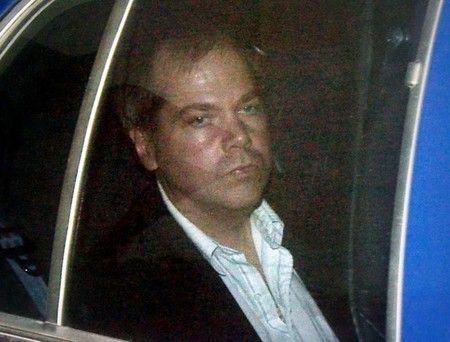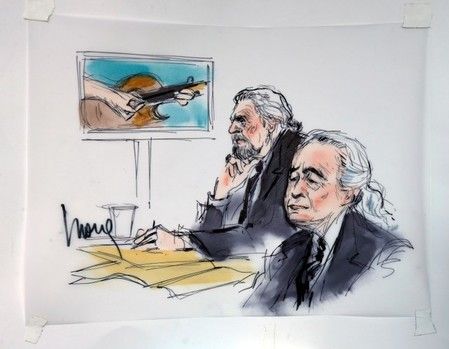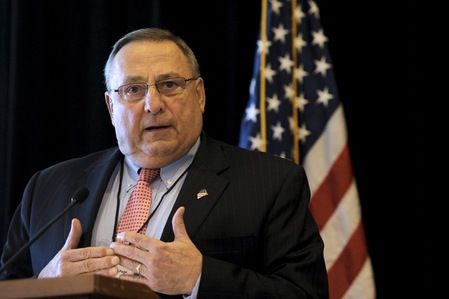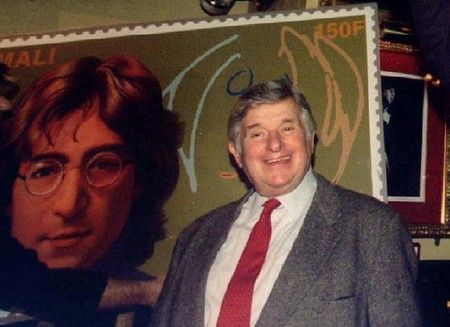Advertisement
McDonald’s CEO says $15 hourly wage, robots won’t kill jobs
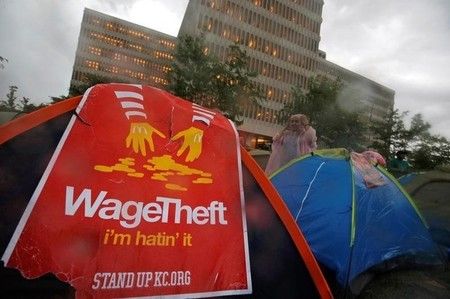
By Justin Madden and Lisa Baertlein
OAK BROOK, Ill./LOS ANGELES (Reuters) – U.S. restaurant operators would probably not replace workers with robots if they had to pay the $15 hourly wage demanded by protesters, McDonald’s Corp Chief Executive Officer Steve Easterbrook told shareholders at the company’s annual meeting on Thursday.
Outside the meeting at McDonald’s headquarters in Oak Brook, Illinois, about 1,000 fast-food workers and their supporters called for higher wages and benefits. The picketers are part of a national “Fight for $15” movement that, along with an improving job market, has spurred wage hikes at major employers such as Wal-Mart Stores Inc and McDonald’s, though not to the level demanded by protesters.
Current and former fast-food executives have said a $15 hourly wage would force restaurants to replace workers with kiosks, robotic french fry baggers, automatic pancake flippers and other technology.
“I don’t see it being a risk to job elimination,” Easterbrook said when asked about the wage/robot theory. “Ultimately we’re in the service business. We will always have an important human element.”
Easterbrook has cited improved customer service as a key reason for McDonald’s recent turnaround. Higher pay and technological advances are more likely to result in workers being shifted to dining rooms and more service-oriented roles, he said.
McDonald’s last summer increased average worker pay to almost $10 per hour. But those raises were limited to just a fraction of all U.S. McDonald’s restaurant workers because franchisees operate almost 90 percent of the chain’s 14,000 domestic locations.
Protesters, who also seek the right to unionize, called on Easterbrook to share profit gains with all McDonald’s workers, not just executives and shareholders.
They have protested at the company’s annual meeting for years. This week, their actions prompted McDonald’s to temporarily close its headquarters for the third year in a row.
“This comes down to holding McDonald’s accountable for keeping workers in poverty,” said Naquasia LeGrand, 24, who traveled 15 hours on a chartered bus from North Carolina, where she makes $8.15 an hour as a McDonald’s swing manager.
Angel Mitchell, a McDonald’s worker from Chicago, spent a rain-soaked night camping out at the company’s headquarters.
“We can’t feed our own families without turning to food stamps,” Mitchell said.
McDonald’s says it cannot tell its franchisees how to pay their employees. The issue is the subject of a closely watched case before the National Labor Relations Board.
The “Fight for $15” campaign is backed by the Service Employees International Union and also includes people who work in home care, child care, airports and higher education.
Also at the meeting, investors voted down a slate of shareholder resolutions, including those involving disclosure of political contributions and antibiotic use in meat production.
Reuters separately reported on Thursday that McDonald’s main French office was searched on May 18 as part of a tax probe. McDonald’s declined to comment on the search.
(Additional reporting by Lisa Baertlein in Los Angeles, Editing by Peter Henderson and Lisa Von Ahn)




